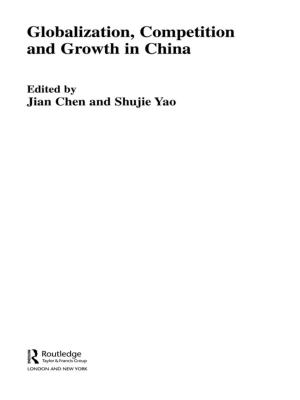Living Together After Ethnic Killing
Exploring the Chaim Kaufman Argument
Nonfiction, Social & Cultural Studies, Political Science, Politics, Civil Rights, History, Military| Author: | ISBN: | 9781317969884 | |
| Publisher: | Taylor and Francis | Publication: | October 23, 2013 |
| Imprint: | Routledge | Language: | English |
| Author: | |
| ISBN: | 9781317969884 |
| Publisher: | Taylor and Francis |
| Publication: | October 23, 2013 |
| Imprint: | Routledge |
| Language: | English |
Thisvolume attempts to critically analyze Chaim Kaufman's ideas from various methodological perspectives, with the view of further understanding how stable states may arise after violent ethnic conflict and to generate important debate in the area.
After the Cold War, the West became optimistic of their ability to intervene effectively in instances of humanitarian disasters and civil war. Unfortunately, in the light of Bosnia, Somalia and Rwanda, questions of the appropriate course of action in situations of large scale violence became hotly contested. A wave of analysis considered the traditional approach of third parties attempting to ensure that the nation was built on the basis of a ruling power-share between the opposing sides of the conflict to be overwhelmingly problematic, and perhaps impossible.
Within this movement Kaufman wrote a series of articles advocating separation of warring sides in order to provide stability in situations of large scale violence. His theorem provoked extreme responses and polarized opinion, contradicting the established position of promoting power-sharing, democracy and open economies to solve ethnic conflict and had policy implications for the entire international community.
This book was previously published as a special issue of Security Studies.
Thisvolume attempts to critically analyze Chaim Kaufman's ideas from various methodological perspectives, with the view of further understanding how stable states may arise after violent ethnic conflict and to generate important debate in the area.
After the Cold War, the West became optimistic of their ability to intervene effectively in instances of humanitarian disasters and civil war. Unfortunately, in the light of Bosnia, Somalia and Rwanda, questions of the appropriate course of action in situations of large scale violence became hotly contested. A wave of analysis considered the traditional approach of third parties attempting to ensure that the nation was built on the basis of a ruling power-share between the opposing sides of the conflict to be overwhelmingly problematic, and perhaps impossible.
Within this movement Kaufman wrote a series of articles advocating separation of warring sides in order to provide stability in situations of large scale violence. His theorem provoked extreme responses and polarized opinion, contradicting the established position of promoting power-sharing, democracy and open economies to solve ethnic conflict and had policy implications for the entire international community.
This book was previously published as a special issue of Security Studies.















